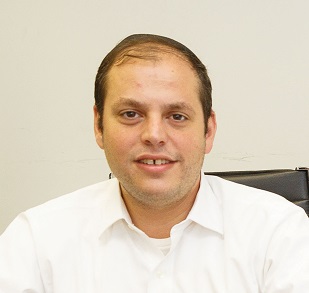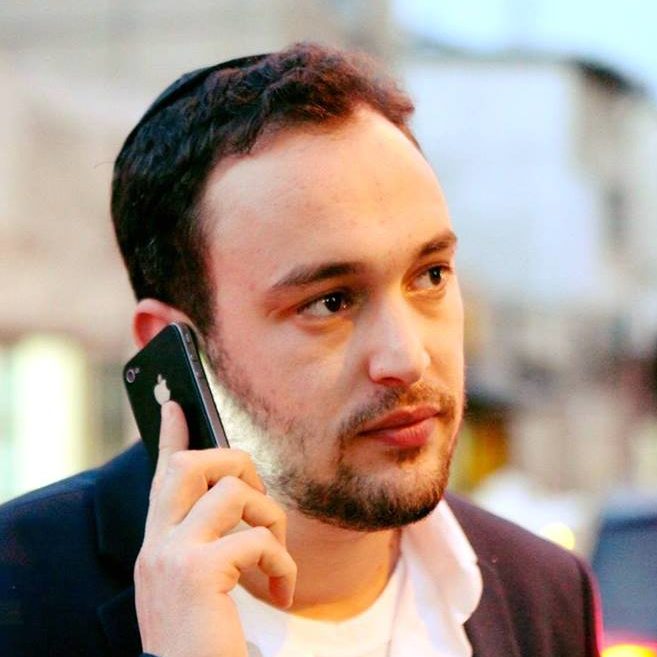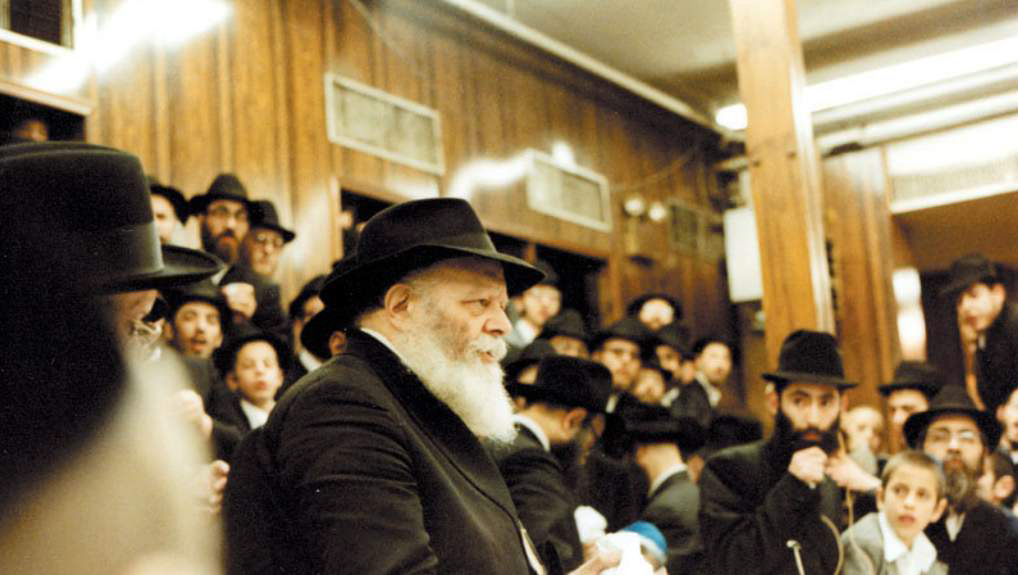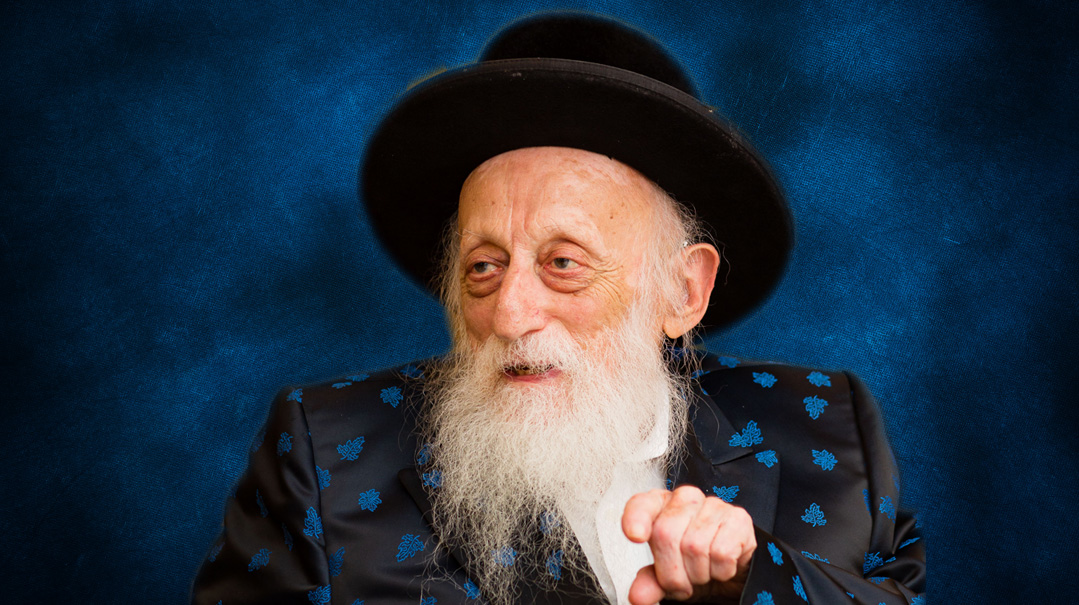At My Father’s Table


Their fathers’ names are renowned throughout the Jewish world — as leaders, doers, public servants, and influencers. Six sons share a glimpse of life at their famous fathers’ tables

A Shoulder to Lean On
Name: Rav Yaakov Dov Teitelbaum, son of Rebbe Yekusiel Yehuda (Zalman Leib) of Satmar
Age: 42
Residence: Boro Park, New York
Learned in: Mesivta of London headed by Rav Chaim Breish ztz”l, and Yeshivas Eretz Tzvi, headed by Rav Mendel Atik in Jerusalem
Position: Gaavad and rosh kollel in the Atzei Chaim-Sighet community, rav of the chassidus’s beis medrash in Boro Park, and his father’s right hand in communal and spiritual affairs
It’s never easy being the son of a rebbe.
All the more so when that rebbe leads one of the world’s largest chassidic courts.
Rav Yaakov Ber Teitelbaum, as he’s known, has managed to carve out his own path. He lives in Boro Park, where he leads a beis medrash that was established by his grandfather, the Beirach Moshe of Satmar, upon his arrival in America from Europe.
After the Beirach Moshe accepted the leadership of the Satmar chassidus, the beis medrash, named for the town where he was born —Sighet, in the Marmarosh Mountains of Hungary — was given over to his son Rav Zalman Leib. In 2006, when Rav Zalman Leib became Rebbe, the shul was given over to Rav Yaakov Ber, making him the third generation to serve as Sigheter Rav in Boro Park.
Among Rav Yaakov Ber’s most notable accomplishments is the release of a popular set of seforim. Called Heishiv Moshe, the series contains teshuvos written by his grandfather, the Yismach Moshe of Ujhel zy”a, along with his own explanations and chiddushim.
Along with the general responsibilities of a rav and posek, the young Sigheter Rav possesses personal charm and has become an effective spokesman for his community in the halls of power. How does he manage to play so many different roles?
“The secret is effective time management,” he says. “There’s always a long list of things to do, and every day is different. When New York City mayor Bill de Blasio wanted to cave in to the liberal elements in City Hall and restore the ban on metzitzah b’peh, we formed a delegation of senior chareidi askanim and met with him on a Friday. The meeting was supposed to take a few minutes, but it lasted almost until Shabbos began. At the end, the mayor announced that the issue was off the table. Sometimes the only effective approach is a personal one, and where there’s a real need that no one is stepping in to deal with, Chazal teach us that one must take action.”
Reb Yaakov Ber’s ability to raise huge sums of money in a short time and his sharp legal mind and fluency in English complement his traditional Satmar focus on helping others, especially when it comes to pidyon shevuyim. He works with a large network of lawyers and is intricately involved in several high-profile cases.
“There is nothing greater than helping another Jew. Unfortunately, there are too many Yidden who get in trouble with the law in America,” he says. “When people get into trouble with the law, they feel that their world is crashing down around them. They have no one to turn to and they think there’s no way out, and that is when they need a shoulder to lean on. That’s the role we try to fill.”
Although he lives in Boro Park, the Rav visits his father in Williamsburg each day, receiving different missions and sharing updates on various campaigns. When the Rebbe travels to Miami in the winter, his son accompanies him and they learn together — a special time for both. “During those two weeks, we learn together b’chavrusa with no disturbances. The Rebbe is alone, and for me it’s a taste of Gan Eden.” In the summertime, father and son sit in the garden near the Rebbe’s bungalow on the grounds of the Satmar camp, learning for several hours a day.
Reb Yaakov Ber, who has a keen understanding of the realities of this world, has overseen the creation of the Meshumar device, a filtered phone sponsored, researched, and produced by Satmar. He has taken the lead in sending young couples to live in the satellite communities in Bloomingburg and Lakewood.
If the Rav has a special cause, it’s the older bochurim in the community who haven’t yet found their match. He opened a yeshivah for them and maintains personal connections with many of them.
Rav Yaakov Ber, chassidim say, is comfortable in both worlds — the beis medrash and the offices of Manhattan — but wherever he goes, he’s rooted in the court of his father and grandfather before him.
Blessed burden
Name: Rav Rachamim Yosef, son of the Rishon L’Tzion Rav Yitzchak Yosef
Age: 38
Learned in: Yeshivas Knesses Hagedolah
Residence: Ramot, Jerusalem
Position: Rosh yeshivah of Yeshivat Chazon Ovadiah
Sometimes, the career change of a parent means a career change for his child as well.
Rav Rachamim Yosef longs for the peaceful, simple days seated on a bench in Yeshivas Mir. For years, that was his paradise on earth. Then his father, Chacham Yitzchak Yosef, accepted the role of Rishon L’Tzion, the Sephardic chief rabbi.
A few days after the appointment, Chacham Yitzchak summoned his son and asked him to assume leadership of his yeshivah, Yeshivat Chazon Ovadiah. Rav Rachamim asked for time to think about it, but his father had already made his decision. At the age of 35, Rav Rachamim was likely the youngest rosh yeshivah of a major yeshivah in the entire country.
But he was eminently suited to the task. One of the avreichim who learned b’chavrusa with Rav Rachamim was Rav Shalom Ber Sorotzkin, who in time became the head of the Ateres Shlomo institutions. He delivered a monumental speech at young Rachamim’s engagement and revealed to the public the scope of the chassan’s knowledge.
The young rosh yeshivah is a talmid of several yeshivos. The path he’s taken, he notes, is similar to the one traveled by his father.
“When I was a little boy, there weren’t a lot of Sephardic chadarim,” he says. “My father sent me to Talmud Torah Hamesorah in the Geula neighborhood of Jerusalem. Still, it was very important to him that I master the traditional Sephardic method of learning, so for yeshivah ketanah, he sent me to Yakirei Yerushalayim. Then, in yeshivah gedolah, I went to Yeshivas Knesses Hagedolah, headed by Harav Hillel Zaks ztz”l, to whom I became very close.”
He’s proud to point out the similarities between the path he’s taken and that traveled by his revered father. “It’s interesting to note that my father first studied at Talmud Torah Yavneh of the Chinuch Atzmai, which was an Ashkenazic institution, and then my grandfather ztz”l sent him to Porat Yosef to acquire the Sephardic way of learning. Then, as a bochur, he returned to the world of the Ashkenazi yeshivos: Yeshivat Hanegev and Yeshivat Chevron. I think that this path afforded us the best of both worlds. Today, baruch Hashem, the Sephardic Torah world has blossomed, and a Sephardic ben Torah can grow and develop in Torah without attending Ashkenazi institutions.”
Experience is invaluable, but age, the rosh yeshivah reflects, brings its own blessings.
“After my father was chosen as chief rabbi, we all thought that my older brother Rav Ovadiah would take his place in the yeshivah. But then Yeshivat Ohel Yosef opened, and Rav Ovadiah was appointed to head it, so my father asked me to take his place. In all honesty, it wasn’t the easiest transition. I’m still young and I wanted to learn some more without the burden of leading a yeshivah. But a young rosh yeshivah also has distinct advantages: I understand the bochurim, I have patience for them, and most importantly I try to implement the approach of my father, who loved every bochur as though he were his own son.”
Rav Rachamim’s s daily schedule at the yeshivah is daunting. He arrives at seven in the morning and doesn’t usually leave before ten at night. His entire day is dedicated to the hundreds of talmidim. Even after they get married, many students continue to maintain contact and consult him on important matters and to receive guidance in shalom bayis.
There was pressure growing up, to be sure.
“It wasn’t easy for us, growing up with that kind of last name and lineage. Even as children, we felt the unspoken expectation not to tarnish the family name, so to speak. And people used to ask me questions in halachah, expecting me to have answers. The pressure obligated me to learn more, to know more. But despite the tremendous burden that the whole family carried on our shoulders, I don’t think any one of us would have forfeited it. It forced us to live up to the expectations.”
Beyond that, the family name came along with vibrant examples of how life is meant to be lived.
“When we were children, there wasn’t a day that passed that Abba didn’t ask us what we learned in cheder. He would hold contests, and he gave us prizes, but most importantly, he set a personal example of how a real talmid chacham looks. For us, he was a role model in every area. I remember how he always went to great lengths to explain to us how important it is to learn according to the Sephardic method: Gemara, Rashi, and all the Rishonim, and to review it as many times as possible, and most important to learn in order to extract the practical halachah.
“My mother was also a powerful example to us. Today, most people don’t understand true mesirus nefesh. Anyone who gives up a few minutes of sleep considers himself a moser nefesh on par with the Asarah Harugei Malchus. But when I look back at the way we were raised, I think that our mother was truly moser nefesh in the simple sense of the word. There was no effort that was too much for her when it came to the chinuch of her children. She took the entire burden of the household off my father’s shoulders so he could focus on his learning. She would come to parent-teacher meetings, do the shopping and cooking, spoke to us and worried about us. When you grow up in such a home, there aren’t many choices. You have to grow up right.”
That glorious example was all the more vivid against the backdrop of his grandfather, Maran Rav Ovadiah Yosef.
“We grew up with the knowledge that every minute of Saba’s time was holy of holies and we must not disturb him. On the other hand, every time we came to visit, he would shower us with love. I remember we once traveled with him in the car and he recited an entire perek from Sefer Yechezkel by heart, with the commentaries. He finished just as we arrived, and he told us that on the way back, he wanted us to repeat to him the perek by heart. We tried our best, but of course we couldn’t compete with his phenomenal memory. Still, I remember how he was happy with every pasuk that we were able to remember, encouraging us that the only way to grow in Torah is to review more and more.
“I think all of us, all the grandchildren, were affected by his unbelievable love of Torah. Halevai we should merit to achieve even a fraction of what we merited to see.”
Beyond the Political Divide
Name: Rabbi Eliyahu Gafni, son of MK Rabbi Moshe Gafni
Age: 37
Residence: Bnei Brak
Learned in: Yeshivas Ponevezh, yeshivah ketanah and gedolah
Position: Avreich in Kollel Ponevezh
Eliyahu Gafni never visited his father at work.
When the Gafni boys, Michi and Eliyahu, were young, their father was a rosh kollel in Ofakim. Tapped by Rav Shach to join the nascent Degel HaTorah party, Rabbi Moshe Gafni became MK Moshe Gafni, and the turbulence and unrest in the chareidi community of those years made things difficult.
Their father made a decision back then, one he’s stood by until today: His family would be off-limits. Gafni’s children have never once seen his office, never visited the Knesset or even the Degel HaTorah headquarters. They don’t use their father’s driver for errands, and if Eliyahu Gafni wants an update on his father’s activities, he chats with his father’s assistant, Shlomo Pollack.
A few months ago, Rabbi Gafni’s grandson came on a class trip to Jerusalem, and the chaperone decided to surprise the little boy and take him to visit his grandfather’s office in the Knesset Finance Committee. The boy came in and looked around with curiosity.
“This is where you work?” the boy asked his grandfather. “It doesn’t look like a place for you, Saba.”
The grandfather couldn’t be prouder.
Rabbi Gafni works long, hard hours. Motzaei Shabbos, though, is family time, and Bnei Brak residents are accustomed to the sight of the Knesset Finance Committee chairman taking his weekly walk with his granddaughters.
Eliyahu Gafni has absorbed his parents’ approach toward luxury, and like them, he lives in a small, simple Bnei Brak apartment. He spends his days and part of the night in Kollel Ponevezh, a very different world from the one inhabited by his father.
He is old enough to remember the day when everything changed for the Gafni family.
“We grew up in Ofakim. My father was a rosh kollel, my mother was a teacher in Bais Yaakov, and there was no hint that our future held anything different. When I was nine years old, the Rosh Yeshivah ztz”l called my father and told him he was slating him as the number two on the Degel HaTorah list for the Knesset. No one else understood how the avreich from Ofakim could succeed in a political setting, but Rav Shach saw further than others. What did my father think? I don’t know what went through his mind, but I do know that he accepted the decision unequivocally.
“It wasn’t an easy time for us kids,” Eliyahu remembers. “There was a lot of tension, entire communities that didn’t like the new party. We sometimes got harassed, but we knew that our father was doing what he needed to do. Three years after he began serving as an MK, the commute became too difficult and time-consuming, and my parents decided to move to Bnei Brak, where my grandparents live.”
In time, the hostility faded and was replaced by respect. People would stop the Gafni boys to tell them about how Reb Moshe had helped them, as individuals or organizations. “People would refer to him as a shaliach tzibbur. It was nice to hear, but we’d always known that our father views himself as a true emissary of gedolei Yisrael.”
Moshe Gafni’s trips to the homes of gedolim were an opportunity for the MK to transmit his values to his sons.
“We would often go with Abba to Rav Shach,” Eliyahu says. “At the beginning of the meeting, the Rosh Yeshivah would shower us with brachos and give out candies. But then, when they began to talk about public affairs, my father would ask us to leave the room. He didn’t want us to see him talking about things that had nothing to do with ruchniyus.”
Eliyahu still remembers an episode that highlights his father’s parenting priorities. “In 1989, my older brother, Reb Michi, was learning in Ponevezh. The country was then in the midst of a stormy election campaign, and at the end there were complaints about fraud, so it was decided to repeat the elections at some polling places. These repeat elections were supposed to decide if my father would enter the Knesset or remain outside. It was the topic in the chareidi street, but my brother was oblivious to the whole thing. He didn’t know about the repeat elections, about Abba’s chances of getting in, none of it.”
Rabbi Gafni always answers the phone if his children call. “If any of us call, at any time, he picks up. He might say that he’s in a meeting and ask us to call back, but he always makes it clear that family comes first.”
If Eliyahu Gafni decided he wanted to launch a political career, how would his father react?
“He would not be pleased. He raised us as bnei Torah, and that is the biggest nachas for him. Fortunately for us, political positions don’t get passed down from father to son, so it’s not even part of the family dialogue. Ultimately, my father lives like someone who was forced to step into a vacuum that no one else could fill. My kids sense that. No one wants to live a life that was forced on him, lofty as the goal may be.”
Eliyahu says it was never about money. “My father’s lifestyle doesn’t make others jealous, so it’s not like my children see any real personal benefit to his career. He lives in a simple apartment with a simple lifestyle. My parents don’t take any luxury vacations. This frugality allows them to help their children continue learning. We’re happy to keep doing what we do and try to bring our parents nachas.”
A Tree with Deep Roots
Name: Rav Tzvi Yehudah Lau, son of Rav Yisrael Meir Lau
Age: 39
Residence: Tel Aviv-Petach Tikvah
Position: Rav of the Petach Tivkah community and rosh yeshivah of Nesivos Yitzchak in Tel Aviv
The former chief rabbi of Tel Aviv-Yafo, Rav Yisrael Meir Lau, is one of the most recognized figures in the rabbinical and Jewish world.
The child who survived the horrors of the Holocaust and grew up to become Israel’s chief rabbi is now a legend. Aside from his many activities relating to Holocaust awareness, writing seforim, and preparing tens of thousands of memorable speeches, Rav Lau has become a brand of his own, a symbol of ahavas Yisrael, of the beauty of Torah living, of spirit and hope.
The Rav’s three sons serve in rabbinical positions, following the family tradition: Rav Moshe Chaim Lau is the rav of Netanya; Rav David Lau is the chief rabbi of Israel, and Rav Tzvi Lau is a community rav in Petach Tikvah.
Rav Tzvi is the Laus’ ben zekunim. He was born in Netanya in 1977, during his father’s tenure as rav. When he was 11 years old, his father was appointed chief rabbi of Tel Aviv, and the family moved to the big city. After Tzviki’s bar mitzvah, he traveled to Jerusalem, to learn in Yeshivas Kol Torah and then in Chevron. After his marriage, he studied in the rabbinical kollel of Rav Eliyahu Bakshi-Doron in Jerusalem, and later he moved to Tel Aviv to disseminate Torah.
A rav and rosh yeshivah, he teaches with mind, heart, and soul. He’s proficient in the masechtos studied in yeshivos, even as he holds mispallelim at Khal Chassidim rapt with his chassidus-filled drashos. He delivers a lomdus shiur to the students of Nesivos Yitzchak in Tel Aviv and can also captivate the audience at a chuppah for residents of northern Tel Aviv, people whose connection to Yiddishkeit starts and ends with a Jewish marriage ceremony.
And most of all, he is his father’s son.
As the youngest son, he had a special relationship with his father. “I saw my father as rav of Netanya, a relatively small city, and then as rav of Tel Aviv, and later as the chief rabbi of Israel,” he says. “Many view Rav Lau as some sort of sparkling brand name, but what I saw was the hard work — my father trudging from one shul to another to teach Torah, the endless hours spent preparing shiurim and the daily work, the myriad obligations and responsibilities. I accompanied him to all kinds of kibbutzim and towns I’d never before heard of. My father explained that after seeing his world destroyed in the Holocaust, even the smallest shul couldn’t be taken for granted. Every little discovery of Judaism excited him; every Jew who learns daf yomi was something to celebrate.
“Hard as he worked, he raised us to be happy with every achievement, to rejoice in every little bit of progress. When a person is happy, it radiates outward, and that is the chinuch we received.”
Rav Tzvi remembers his father making it enjoyable for his children to be the rabbi’s sons, even in areas where Judaism was viewed as something burdensome and antiquated. “My father had a regular game that we would play as we went to his shiurim. You might call it ‘Remember the shiur’ — he’d challenge me to remember what he had spoken about the previous year, ostensibly so he wouldn’t make a mistake and repeat the same speech. Obviously he didn’t need my reminders, but this way I had a personal stake in the shiur. So I’d sit and listen to the speech and store it away in my memory, so that a year later I could remind him what he had spoken about. It made him very happy.”
Rav Tzvi was raised by a father who himself hadn’t really tasted childhood. The Nazis had taken that from Rav Yisrael Meir. But for the most part, he didn’t share the horrors with his children.
“We heard a lot about the liberation,” Rav Tzvi says, “but almost nothing about the day-to-day experiences in the camps. When my uncle, Naphtali Lau-Lavi, was working on his book, he would send pieces to my father for review. My father sat with us and read tearfully from the text. It was the first time we were exposed to his personal story. Later, when he published his own biography, we learned more about his childhood.
“I remember just once seeing him become visibly emotional. When I was eight, I learned in Masmidim, and there, they taught us to tie our own tzitzis. When I brought that pair of tzitzis back to my parents, I thought he would be so excited — but instead, he got very emotional and said to my mother, ‘When I was Tzvi’s age, eight, who would have believed that I would have a son, and that he would prepare tzitzis by himself?’ I will never forget that scene.”
Rav Tzvi is guided in his own harbatzas Torah by his father’s example.
“My father has always had this unique ability to reach people who are very distant from Torah values,” he says. “His secret weapon is his deep roots in the world of Abayei and Rava. Other people try to connect with our secular brethren, but they don’t achieve the same success, because their own roots haven’t penetrated deeply enough in the ground of Torah. A tree needs strong, deep roots if it wants to grow tall enough to share its shade with others.”
Many public figures have a different persona when they’re at home, outside the spotlight. But Rav Tzvi says that’s never been the case for his father. “My father is the most consistent person I know. He says the same thing, in the same tone, to his children at the Shabbos table, to two people who come to his office, or to a crowd of tens of thousands. His behavior isn’t contingent on anything or anyone else, and that’s something that I aim for as well.”
As a child with privileged access, Rav Tzvi is privy to another unknown dimension of his father’s personality. “My father always appears dignified and is often seated among the rich and powerful, so people might not realize that his lifestyle is actually very spartan. He’s satisfied with the bare minimum and is immensely grateful for everything Hashem gives him.”
The family feels this most during family simchahs. “Each birth, each bar mitzvah and wedding, you’ll find him checking off boxes on his calendar. They’re his personal revenge against the enemies of the Jewish nation. He often cites the pasuk ‘Milchamah l’Hashem b’Amalek midor dor’ and explains it to mean that this war is waged through us bringing to the world more and more generations who are faithful to Hashem. That is the real victory.”
Soldier for the Cause
Name: Menachem Eichler, son of MK
Rabbi Yisrael Eichler
Age: 33
Residence: Bnei Brak
Position: Strategic marketing consultant
The Eichler family is well known
in Jerusalem as a clan with a longtime affinity for public activism. The patriarch of the family, Rabbi Menashe Eichler ztz”l, who passed away last year, was known as one of the eminent figures of Jerusalem, establishing a chevra kaddisha, and setting up a support system for children at risk before the term existed. For half a century, he managed activities at the kever of Rabi Shimon bar Yochai in Meron, and was one of the first meshamshim of Rav Aharon of Belz zy”a , after the Rebbe arrived in Eretz Yisrael. With the Rebbe’s passing, Reb Menashe became an early chassid of the current Rebbe, so Reb Yisrael Eichler was born into public activity and Belzer chassidus.
Eichler began his work as a journalist and for years edited the Hamachaneh Hachareidi weekly. Along with a column in Mishpacha, the gifted communicator was a leading commentator in the general media. That role began in 1982, when then-Jerusalem mayor Teddy Kollek spoke against chareidim who purchased apartments in the city. Yisrael Eichler was asked by an interviewer to come and offer a response. The response was broadcast nationally, and from that day on, Eichler became the unofficial spokesman for the chareidi sector, the first chareidi “masbiran” to appear regularly on screens and stages in an effort to explain the unique phenomena of chareidi life.
“There is no reason why I, whose family’s been living in Jerusalem for 100 years, should be a guest, while this man, the son of an assimilated family that came on Kasztner’s train, should be a regular,” Eichler once said when he was asked about sitting next to Tommy Lapid in a television studio.
In 2003, Eichler was chosen to represent the Belzer chassidus in the Knesset, and he became an active MK. He retired from the Knesset two years later in rotation with MK Shmuel Halpert and then returned in 2011 as part of the rotation agreement with MK Rabbi Meir Porush. In the 2013 elections, Eichler became a full-time MK.
Eichler is known for his communal work. He serves as chairman of the Public Appeals Committee, handling hundreds of queries from across the spectrum. His motto, as he expressed in an interview with Mishpacha in the past, is still valid: “Nothing can be greater than doing a favor for a Yid.”
Eichler is still invited to broadcast studios to serve as the mouthpiece for tens of thousands of members of the chareidi sector and to prevent the incitement that rises up from time to time. He lives close to the home of the Belzer Rebbe in Jerusalem, and has raised a large family, although his children have not followed his path to public work. None of them serves as a mayor, MK, or any other type of public servant.
Menachem Eichler is the seventh child of the MK. Early on, he says, the children knew that their father was a busy man.
“As children we always knew that my father was occupied with public matters,” he says. “He’d be busy writing articles and books, editing Hamachaneh Hachareidi, and giving lectures and appearing in the media. Even if we didn’t really understand what it meant, we saw that he was always going in and out of the Rebbe’s house.
“I imagine that there are calmer, less demanding jobs that allow a father to sit down with his kids every night for supper,” he says. “That wasn’t our reality. But we got our quality time. In a certain sense, having a father who’s so busy also gives you a sense of importance. You live with the knowledge that you’re part of something big and significant. We knew from a young age that Abba is the loyal emissary of the Rebbe, and therefore, for us this was a real privilege, even if it meant our father wasn’t so accessible.”
Aside from the message, Reb Menachem learned practical lessons as well.
“My father taught us to be honest and speak clearly, and at eye level. My father is an authentic public representative who feels responsibility to help the chareidi public, which is still battling for its basic rights. He really believes in his path, the path of our rebbes, and isn’t scared to take an unpopular public position if he believes that it’s important.”
Menachem also learned that a staunchly committed person can work with people who aren’t just like him and still remain true to his core.
He sees his last name as a blessing, not a burden. “I remember that during one of the more divisive times in the chareidi public sphere, when my father represented the less popular side, a passerby screamed something derogatory at my father. I was ten years old at the time, and paradoxically enough, the incident filled me with a surge of pride. Despite the fact that the man did not at all intend it as a compliment, the screaming made me feel like a soldier in battle, someone who’s fighting against the tide for what’s right. So it’s true that the name Eichler immediately places you in a set of clearly defined boxes, but these are basically the boxes that I want to be in, so it’s fine.”
Here to serve
NAME: Rabbi Mendy Kotlarsky, son of Rabbi Moshe Kotlarsky
AGE: 36
RESIDENCE: Crown Heights
Position: Executive director of Merkos 302, the umbrella organization dedicated to servicing, empowering, and assisting Chabad shluchim, their families, and their communities
As a child, Mendy Kotlarsky knew that his father took work seriously.
Rabbi Moshe Kotlarsky, vice chairman of Merkos L’inyonei Chinuch, was charged by the Lubavitcher Rebbe with supporting and expanding the worldwide network of shluchim and shluchos.
“The first thing we saw was the sense of mission — it’s not a job like any other,” Mendy says. “To my father, it was a privilege, a connection to the Rebbe, and a chance to be part of the heroism of the families on shlichus all over the world.”
There was no other child in school who could complain that their father traveled too much in front of Reb Mendy, whose father was rarely at home for more than a few days at a time. But he doesn’t remember the distance, just the closeness.
“It’s true that my father was away a lot,” he says. “He was, in effect, an ‘employee’ of bosses in 104 different countries who all needed his help. These days, you can use technology and have face-to-face meetings with people across the world, but then everything had to be done in person, and he was the person.”
Reb Moshe wouldn’t come home from a business trip with candy, as other fathers do.
“The opposite.” Reb Mendy laughs. “He would stock up on candy and chocolate in New York and bring it with him for the children of shluchim who had no kosher treats where they lived.”
He did bring home interesting knickknacks and coins from his travels. “He was almost always home for Shabbos, and used his time with us wisely. We felt that he was completely present.”
After marriage, Mendy spent a year learning in kollel. Then, the dynamic young man considered opening a Chabad center in his wife’s native Toronto. “It seemed like it would be so much more satisfying, to build a kehillah and inspire Yidden, rather than working for an organization in an office.”
But after discussing it with his father, Mendy eventually joined the administration of Merkos 302, working hand in hand with his father. “What can I say? I never realized how invigorating an organizational job could be. You can sit at a desk in a Brooklyn office and be on the front lines, fighting for neshamos.
“At Merkos 302 we’re continuing to build, creating a super-center to which all shluchim and shluchos can look for support. It’s thrilling, every single day. My father always tells us that most of the people we’re in touch with are building kehillos of their own — but we have to be their kehillah, their support network, their friends.”
Working in the iconic building at the corner of Eastern Parkway and Kingston Avenue, a flight up from his father, Mendy gets to observe a master at work. “I marvel at the way my father deflects credit. When we have a good meeting with a donor, or when he’s able to accomplish something to help a shaliach, he never basks in it. It’s always, ‘Remember who sent us here, who gave us this mission. We have siyata d’Shmaya in our work because of the Rebbe’s zechus, not our own talents.’ He reiterates that we have a privilege in being able to help shluchim and shluchos, the real heroes.”
Mendy has also learned how to manage his time and be present and accessible for every shaliach from his father’s example. One needs help obtaining tefillin or with a medical referral, and the other one has a funding question for a huge campus — it’s all the same. His shlichus, the way he sees it, is to help them do their shlichus and reach as many Jews as possible, and he considers it an honor. “This time of year, we’re organizing Sedorim for tens of thousands of unaffiliated Jews, most of whom don’t belong to a shul and have no family Seder. We’re sending people, helping coordinate logistics, sending cases of matzah and wine. My father feels it’s all part of his job, and along with his staff, he deals with each request as if it’s the most important one on his desk. We’re all impacted by that attitude.”
Finally, there is one principal lesson to every interaction. “The whole world is our frontier,” Mendy says with obvious passion. “We have to keep at the mission, encouraging and strengthening those already there, and in places where there is no shaliach, we have to create an image of a frum Jew so that local communities will say, ‘We also want that in our lives.’ ”
Like every son of a famous father, he often faces the million-dollar question of how his well-known last name has affected him — but his answer is different than most.
“Every Yid is special. There’s no such thing as special treatment, a neshamah makes you a VIP. In Chabad, all the children were given the best seats, davening near the Rebbe. The one area where we Kotlarsky kids were privileged, perhaps, was in being able to have access to the Rebbe. My father was often near the Rebbe outside of the beis medrash as well, so we got to be part of that, and those experiences are seared onto my soul.”
And regarding the need to form one’s own identity, Mendy doesn’t see that as a struggle either. “I have no need to be my own person, because more than anything else, my father taught me that it isn’t about us. We’re here to serve.”
(Originally featured in Mishpacha, Issue 704)
Oops! We could not locate your form.












